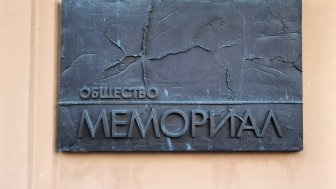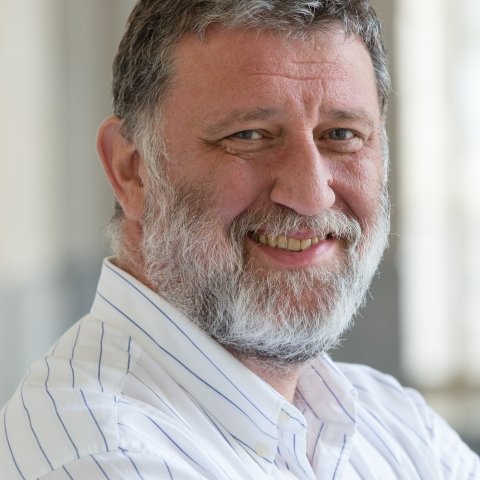Sergey Parkhomenko
Senior Advisor
Professional Affiliation
Journalist, publisher, organizer of civic projects
Expert Bio
Sergey Parkhomenko is a Russian journalist, publisher, and founder of several projects aimed at developing civic activism and promoting liberal values in Russia.
He founded and was the first editor in chief (1995–2001) of Itogi (Results), Russia's first current affairs weekly, published in cooperation with Newsweek. He also served as editor in chief of several publishing houses producing translated fiction and nonfiction and of Vokrug Sveta (Around the World), Russia's oldest monthly magazine.
Parkhomenko is one of the founders of Dissernet, a network community dedicated to fighting plagiarism in Russian science and academia, as well as the founder and coordinator of Last Address, a movement to commemorate the victims of mass political repression in the Soviet Union and Russia.
Parkhomenko is the leader of the Redkollegia project, a prestigious professional award created to support independent journalism in Russia. Since November 2017, he has been senior advisor at the Kennan Institute and head of the Russian Newsroom Project, which aims to support independent Russian journalists and foster professional contacts between the Russian journalistic community and their colleagues in Europe and the United States.
Since August 2003, Parkhomenko has been the author and presenter of Sut' Sobytyi (Crux of the Matter), a weekly program on Radio Echo of Moscow. When the radio station was shut down by the Kremlin immediately after Russia invaded Ukraine in February 2022, he became the host of his own YouTube channel under the same name.
Wilson Center Project
"Creation of an Independent Media Platform in Russia"
Major Publications
- “Kennan Cable No. 32: How Can Russian Civil Society Survive Putin’s Fourth Term?” Kennan Institute, April 2018
- “Russia has yet to recover from the trauma of the Stalin era,” The Guardian, March 2018
- “What Is the Point of Navalny’s Pointless Election?” The Russia File, August 2017
- “The Russian Question in St. Louis: “Why Did Hillary Go to This Debate?,” The Russia File, October 2016
- “Somewhere beyond the barricade, is there a world you long to see?,” Kennan Institute, August 2016
- «Суть событий» Echo of Moscow, August 2015
- «След над Торезом Откуда сбивали малайзийский «Боинг»», Meduza, March 2015
- «Информация принадлежала всем, но никто не догадывался ее взять», Kommersant, October 2014
Previous Terms
George F. Kennan Fellow, Kennan Institute: "Creating an Independent Media Platform" - Designing an independent online media platform is an important topic for Russia and other post-Soviet countries, where many "citizen journalism" projects are being actively developed. These initiatives are crucial for protecting the freedom of speech. Russian journalists and general public interested in free exchange of information and opinion are in desperate need of organizational, technological and managerial solutions that would provide for an effective defense against government pressure and outright censorship. There is a great need for truly innovative, thought-through, technologically advanced ways of designing new generation media — those that would reliably protect the free exchange of information and opinions online. It seems that the most effective method of ensuring the freedom of speech is the introduction of collective, "distributed" information projects. Such projects can be best organized through the establishment of volunteer communities — groups of civil society activists that work together to develop and maintain information resources.
Insight & Analysis by Sergey Parkhomenko
- Blog post
- Security and Defense
Мятеж

- Blog post
- Conflict Resolution and Peacebuilding
Prigozhin’s Escapade: What We Know, What We Don’t Know, and What Conclusions We Can Draw

- Past event
- Democracy
The Sentencing of Vladimir Kara-Murza: Russian Civil Society in Europe Responds

- Past event
- Society and Culture
“Broken Ties”: A Conversation with Andrey Loshak

- Podcast
- Press Freedom
Russia's New Expats pt. 2
-
Listen on

- Past event
- Press Freedom
Confronting Russian Cyber Censorship

- Past event
- Human Rights
Russia Without Memorial

- Blog post
- Governance
Putin's Goal in Destroying Memorial: One More Step in Dismantling Russia’s Civil Society


